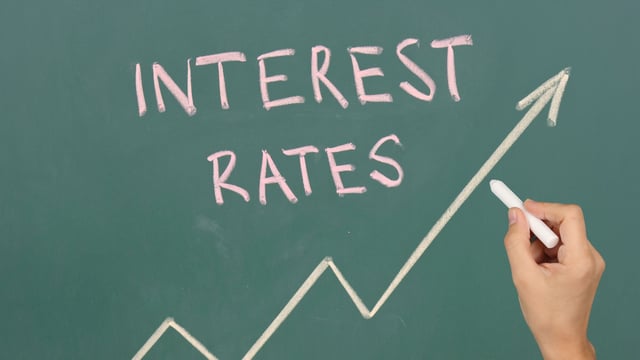What the increase of the repo rate by 50bps means for you
Higher interest rates for South Africans
At the end of March 2023, the South African Reserve Bank (SARB) raised the repo rate by 50bps. At the time of writing this blog post, the repo rate is at 7.75%. This makes the prime lending rate the highest since May 2009. Since November 2021, this is the NINTH increase of interest rates. If you’re feeling the pinch, you’re definitely not imagining it. The cost of living has increased.
Many South Africans will be tightening their already tightened belts. How do you fork out more money when you simply do not have the money to fork out?
What can you do when you can no longer cut down on expenses to pay for your bond, groceries, and electricity?
What can you do when you can no longer keep up with the cost of living crisis? What can you do before you start to fall behind on your debt repayments?
You can go under debt review.
Did you know: debt review offers relief from the interest rate increases. This is because after your Debt Counsellor has negotiated your reduced interest rates, those rates are FIXED for the duration of your debt review plan. That means our clients are all on low rates that don’t increase.
Future-proof your salary against further interest rate hikes, go under debt review now!
Moku thought-provoking question: If you have an investment property that you rent out, does your rental income still cover your bond repayment when interest rates rise? Can you afford to make additional payments to cover this bond? If not, you may be over-indebted or very close to the line.
Read: How do you know if you're over-indebted?
What happens when interest rates increase?
When the SARB increases the repo rate, this has a direct impact on you in two fundamental ways:
- Your home loan
Your bond repayments will increase. - Your car loan or any loan that was taken out at a bank will increase.
Any loans that get taken out by a bank will increase because when the repo rate increases, the prime lending rate—the rate at which banks lend—will increase too.
Read: How you can manage your money during a cost of living crisis
What is the new interest rate in South Africa?
The latest interest rates in South Africa are:
The repo rate is currently 7.75% and the prime lending rate is 11.25%. Inflation is currently at 7%.
The next meeting by the SARB’s Monetary Policy Committee (MPC) will be on 25 May 2023.
Why are interest rates going up in South Africa?
By increasing the repo rate, the SARB is attempting to curb inflation. The repo rate, and the increase and decrease of it, is calculated using inflation targeting, with the aim to keep inflation between 3-6%.
Economists predicted just a 25bps increase, but the SARB increased by 50bps. Watch this video with Nedbank’s Economist Nicky Weimar as she explains why she thinks the SARB made this move:
What is inflation?
Inflation, according to the SARB, “is an increase in the general price level of an economy.” Statistics SA measures inflation using the consumer price index. Included in this index is: the prices of typical goods and services used by households in South Africa such as petrol, food etc.
Why does inflation increase?
There are three main reasons inflation increases:
- Supply-side inflation:
When goods and services become cheaper to produce, inflation decreases. When they become more expensive, like in the case of fuel, inflation can increase. - Demand-side inflation
When people spend more money, prices will more likely increase. When people spend less, they will decrease. A key example here would be all the repo rate reductions during COVID to encourage South Africans to spend more.
Increasingly people have less disposable cash, so why is the SARB increasing the repo rate?
3. ExpectationsThe previous question can, in part be answered by the third factor influencing inflation which is expectations. Expectations are based on the people in the economy who respond to inflation by setting prices of goods and services and wages. As inflation increases, people expect to earn more each year. Rent will increase, school fees are expected to increase etc. When prices increase even though demand is low you have stagflation.
Will there be more interest rate hikes in 2023?
In an interview with SABC, Nedbank Economist, Nicky Weimar shares that she believes we are very close to the end of interest rate hikes in this cycle. "If we were to adjust our forecasts, we'd probably see this as the last hike in the cycle, but of course this all depends on what happens in the next 3 months. Whatever happens to US interest rates, will have an important bearing because it impacts on the Rand." - Nicky Weimar, Economist at Nedbank


